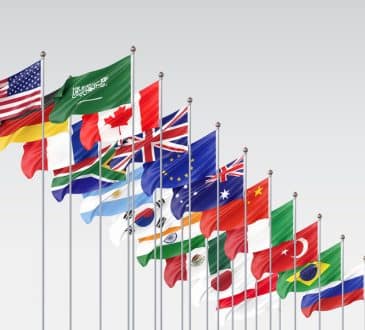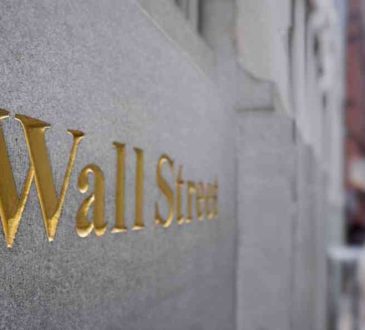Top 10 Threats That CEOs Are Concerned In 2020

In 2020 as CEOs look ahead are very pessimistic. Only 27% of CEOs are very confident in their prospects for revenue growth in 2020, a low level not seen since 2009, according to 23rd PwC’s annual global CEO survey. Uncertainty is the main word, worrying CEOs. So, which are the top 10 threats that CEOs are concerned about their organization’s growth prospects in 2020?
The number one is over-regulation. 36% of CEOs express increasing concern about over-regulation. The second one is trade conflicts as 35% of CEOs are worried about this factor and its impact on their organization’s growth. The third one is uncertain economic growth as 34% of CEOs expresses their increasing concern. Cyber threats and policy uncertainty are the other two threats that make CEOs worry for their organizations in 2020. 33% of CEOs worry about cyber threats while another 33% of CEOs think that policy uncertainty will affect negatively the economic growth of their organization.
At the same time, 32% of CEOs worry about the availability of key skills while 30% of CEOs think that the geopolitical uncertainty will affect in 2020 the economic growth of their organization.
The number eight threat is the speed of technological change as 29% of CEOs consider this factor very important. 28% of CEOs consider protectionism as the number nine threat to their organization in 2020. The top 10 list with the major threats for the economic growth of the organizations according to CEOs complete the populism. 27% of CEOs answered that populism is a major threat for their organization’s growth in 2020.
Top 10 threats that CEOs are concerned about their organization’s growth prospects in 2020
- Over-regulation
- Trade conflicts
- Uncertain economic growth
- Cyber threats
- Policy uncertainty
- Availability of key skills
- Geopolitical uncertainty
- Speed of technological change
- Protectionism
- Populism
Of course, there are some more factors that worry CEOs. The 24% of CEOs answered that they are worried about climate change and environmental damage and the impact on their businesses. The 22% of CEOs worry about increasing tax obligation, another 22% express increasing concern about exchange rate volatility, the 21% of CEOs worry about changing consumer behavior and the 19% of CEOs about tax uncertainty.
For the first time, more than half (53%) of CEOs all over the world believe the rate of global economic growth will decline in 2020. Only 24% believe the rate of economic growth will stay the same while 22% believe it will improve. Another factor that will affect businesses is undoubtedly the spread of coronavirus, although it is not mentioned in this survey.
According to the findings of the PwC’s 23rd annual global CEO survey, the region of Western Europe seems to be more pessimistic about the next months of 2020. 59% of CEOs believe the rate of global economic growth will decline in 2020. Only 18% believe the rate of global economic growth will improve while 23% of CEOs believe that it will stay the same in the next months of 2020.
What about in Greece? 52% of CEOs believe the rate of global economic growth will decline in 2020. 25% of CEOs believe the rate of global economic growth will stay the same while 23% of CEOs believe that it will improve in the next months of 2020.
North America CEOs regard cyber threats as the leading threat to their organization’s growth prospects in 2020. In Western Europe, it’s over-regulation that deeply concerns CEOs. Asia-Pacific business leaders see trade conflicts as the leading threat, whereas in Latin America, Africa, and the Middle East, the top challenges remain populism, policy uncertainty and geopolitical uncertainty, respectively.
Of the CEOs in the US and China who express extreme concern about trade conflicts, more than half continue to say they are adjusting their supply chain and sourcing strategy. However, US CEO reactions are fairly muted compared with last year. The share of US CEOs making no change to their operating model and growth strategy has actually grown by 51%.
On the other hand, China CEOs continue to vigorously shift their growth strategy (58%) and, increasingly, their production (63%) to alternative territories. It is not surprising that China exports far more to the US than the US exports to China. This shift in growth strategy has also benefitted a number of nations in Southeast Asia, as well as Australia.
It’s crucial to mention that this year’s survey reveals that globally, fewer than one in five leaders (18%) believe their organization has made significant progress in establishing an upskilling program. Also, compared to ten years ago, CEOs are more likely to recognize the benefits of investing in climate change initiatives in 2020.
Have you read?
# Africa’s Billionaires: Richest People In Africa, 2020
# Ranking of the World’s best wedding destinations, 2020
# Ranking of the World’s best-performing companies, 2020
# Ranking of the World’s best hotels for business travelers, 2019, 2020
Bring the best of the CEOWORLD magazine's global journalism to audiences in the United States and around the world. - Add CEOWORLD magazine to your Google News feed.
Follow CEOWORLD magazine headlines on: Google News, LinkedIn, Twitter, and Facebook.
Copyright 2025 The CEOWORLD magazine. All rights reserved. This material (and any extract from it) must not be copied, redistributed or placed on any website, without CEOWORLD magazine' prior written consent. For media queries, please contact: info@ceoworld.biz








